I've written more posts than I care to remember on 'fifteen minute cities', Clean Air Zones, Low Traffic Neighbourhoods, so called 'active travel', the crap state of cycling and pedestrian infrastructure, and last but by no means least, the pathetic excuse we have for public transport here in the Avon region. After a number of 'interesting' exchanges with a few tone deaf Liveable Neighbourhood zealots from Bristol on Twitter, yet again I feel obliged to return to looking at the issues relating to the way we move around. Please forgive me for repeating points I've made in previous posts but sometimes, constant repetition is the only way the message will eventually sink in with some people!
On being a non-driver
Before I proceed, some degree of disclosure about my personal position regarding how I get around is in order to put what I have to say into some kind of context. Neither I or my partner drive. There are a number of reasons for this ranging from my piss poor coordination skills through to an extreme reluctance to spend thousands of pounds on a car that will start to depreciate in value from the moment I first start up the engine. We've always got around using public transport, both train and bus, and by walking. Cycling has never been an option because of a personal aversion to pothole dodging while having to look out for some of the nutters on the roads.
Because neither of us drive, when we relocated from Thurrock to Keynsham, despite some of the criticisms I've made about 'fifteen minute cities', one of the main criteria for finding a place to live was having shops, health care, cafes, pubs and a railway station within a fifteen minute walk of where we lived. Luckily, we found a place that provided all of the above but, there's one downside which we have to live with day and night...
That downside is traffic noise. We live next to the Keynsham bypass which takes the A4 round the northern edge of the town and as I sit here writing this piece, I can hear the constant noise of traffic. As an aside, the majority of the noise we have to put up with is surface noise. Something that could be fixed if the authority in charge of the road spent some money on a surface that would significantly reduce the noise we suffer. It's only occasionally that we hear engine noise and that generally comes from some petrol head who wants to share the racket their vehicle makes when moving at speed in order to 'impress'. Naturally, both of us reckon these petrol heads need to get a life!
So, when asked the question as to whether we think there needs to be a significant reduction in the volume of traffic on the road network, our selfish side wants to give an emphatic yes as an answer! However, even as non drivers, we understand why for many people, they have no viable option to get around other than to drive and why that has to be taken into consideration in what we write about the issue. As a consequence of this, the position we take on the issue of how people move around tends to be more complex and nuanced than some people are willing or even able to comprehend.
Being left with no alternative but to drive
As I've written quite a few times previously, we've had decades of planning policies based on the assumption of near universal car ownership. That has had consequences for how our cities, towns, overspill towns and villages have developed. One being that for many people, owning a car and driving is pretty much a necessity because as things stand at the moment, there are no genuinely viable alternatives available.
When you're living in a sprawl of new builds on the edge of town and you're nearest supermarket is two miles away, the buses are infrequent and unreliable, how else are you expected to travel other than driving? If you're job is in a trading estate or an office park ten miles away on the edge of town in a location poorly served by public transport, how else are you expected to get to and from work other than to drive? If you're a carer and have to transport someone with a disability which means they cannot use public transport or walk very far, how else are you expected to do that other than to drive? The litany of how people have become obliged to rely upon their cars goes on a lot further, but hopefully, you're getting an idea of what the consequences of planning policies based on the assumption of near universal car ownership are.
How can we move forwards?
Setting aside the arguments about carbon which I personally think are a massive diversion from the real environmental problems we face, the one incontrovertible fact we face is that we live on a finite planet. As I argued in the latter half of this piece - The future of movement on a finite planet 20.2.23 - at some point, we have to start having a discussion as to how we adapt our lives to live within the constraints imposed by the planet that's our home. That will involve a discussion about how we reconfigure our communities and our lives to cut down the amount of travelling we have to do.
It could be argued that this discussion is already underway with the implementation of fifteen minute cities and low traffic/liveable neighbourhoods. To say that discussion has been somewhat fraught is an understatement. The controversy over a proposed Liveable Neighbourhood in the east of Bristol is just one example of how fraught that discussion is.
Polarising communities is NOT the way to go!
The way fifteen minute cities and low traffic/liveable neighbourhoods are being mooted is turning out to be an object lesson in precisely how to alienate people to the point where they will be in active opposition to these schemes. For a variety of reasons, people are wary of what they see as top down schemes that will have adverse impacts on their lives being imposed with little meaningful consultation. This is why the Liveable Neighbourhood being proposed for an area in the east of Bristol is proving to be controversial because it's perceived that some voices are getting more of a hearing than others. In this case, the perception is that the more affluent residents in Redfield who supported the scheme are dominating the discussion while residents in the more working class and ethnically mixed Barton Hill area are being ignored.
However, with enough pressure, that can be changed. This is one of a number of posts from the Bristol Cable looking at this scheme: Division emerges over Bristol’s first liveable neighbourhood scheme - Matty Edwards | The Bristol Cable | 7.6.23. While it acknowledged there were divisions, this piece still gave the appearance of being in favour of the scheme. Cue pressure from a variety of quarters and the author of the piece feels obliged to go to Barton Hill to listen to the concerns of the residents there.
This piece is the outcome of those conversations: ‘We want them to listen to us’: fear and anger in Somali community over liveable neighbourhood plans - Matty Edwards | Bristol Cable | 28.6.23. A much better, considerably more nuanced piece that acknowledges people's genuine concerns - pressure pays, keep it up:) One that hopefully will prompt the tone deaf zealots supporting this scheme to undertake some deep thinking. This particularly applies to the tacit racism of some of them who tried to dismiss at least one of the Twitter accounts of the Somali community in Barton Hill as not being truly 'representative'.
Rejecting control matrices imposed for 'our own good'
I've dealt with how those in marginalised communities feel that schemes such as the Liveable Neighbourhood in the east of Bristol are being foisted upon them by those in neighbouring, more middle class and white areas. What I'm going to look at now is the broader sense of mistrust of authority that arose as a response to the lockdowns and restrictions brought in during 2020 and 2021 in a bid to 'contain Covid'.
As I've written a number of times before, the Covid 'crisis' was, and arguably still is, being leveraged to speed up the implementation of the Fourth Industrial Revolution. From test and trace, through to 'vaccine passports', there were many attempts to plug us into a digital control matrix. Attempts which through a combination of popular opposition on the one hand and on the other, ineptitude from the authorities, failed to make any real purchase. What they did unwittingly achieve was to foster a growing suspicion of any kind of surveillance and tracking technology.
What some of the measures brought in to deal with the Covid 'crisis' could arguably be seen as a trial for, was to see how far people would tolerate restrictions on their movement. Bear in mind that for a few months in the first half of 2020, driving out into the countryside was frowned upon and people had to make do with what was on their doorstep. At that time, we were still living in the eastern part of Thurrock and not being able to travel anywhere by train, we ended up taking more walks than ever across the fields, marshes and along the seawall close to where we were living. As did many other people to the point where the footpaths we were using were getting noticeably wider after a few months! What we did notice was that as soon as the restrictions, people started to travel further afield for their leisure. So, the answer to whether people would be happy having the range of their movements restricting would appear on the face of it to be 'no'.
With fifteen minute cities, clean air zones and low traffic/liveable neighbourhoods all to a greater or lesser degree relying on an array of surveillance and tracking technologies to implement them, it shouldn't really come as a surprise to anyone that after what was attempted during the Covid 'crisis', people are very wary of them. As with the opposition to the measures brought in to ostensibly deal with the Covid 'crisis', opposition to the implementation of various traffic control and reduction measures comes from a broad range of people.
The low traffic/liveable neighbourhood zealots branding anyone opposing their pet schemes as 'right wing conspiracy theorists' would do well to take a deep breath and then take a closer look at who is actually opposing them. Back in 2020, I remember watching footage of protests against the implementation of low traffic neighbourhoods in the London Borough of Hackney and couldn't help noticing the participants were people of all ethnicities and, all faiths and none. A heartening demonstration of working class solidarity. With Somalis and others from Barton Hill raising concerns about the impact of the east Bristol Liveable Neighbourhood Scheme on their community, it's high time the accusations of 'conspiracy theory', all too often prefixed with 'right wing', were dropped once and for all.
Real change is needed before we can move forwards
Despite all of the above, the issues discussed in the latter half of this piece - The future of movement on a finite planet 20.2.23 - still need to be addressed. The question is, on whose terms do they get addressed? What we experienced with the way the Covid 'crisis' was leveraged and what we're experiencing now with the drive towards net zero carbon are various ways of experimenting with ways of managing down people's expectations of what they can expect from life. That includes how we move around.
Needless to say that while the vast majority of us are being nudged and exhorted to reduce our expectations, the elites who presume to rule over us still think they can swan about over the globe as they please while continuing to flaunt their wealth and power. The key point to bear in mind is that it's not just about managing down people's expectations and hoping they'll comply - it's also about implementing the control measures that will make sure they have no choice but to comply. It shouldn't come as any surprise that there's a growing current of opposition to this level of control!
The conversation about how we adapt to living within the constraints imposed by a finite planet while being able to lead fulfilling and satisfying lives needs to happen but, it has to be on our terms, not those of the elites who presume to rule over us. That is going to be a tough call and it's not one I have any ready answers to. The only offering I can make is that in order to have the discussions we need to have, power has to be wrenched away from the elites, once and for all, and brought right down to the grassroots in our neighbourhoods and communities. When that happens, we then have the freedom to decide how we reconfigure our lives and where we live so that we can all live in a fulfilling and satisfying way within the constraints of a finite planet. That's when all kinds of exciting possibilities open up:)


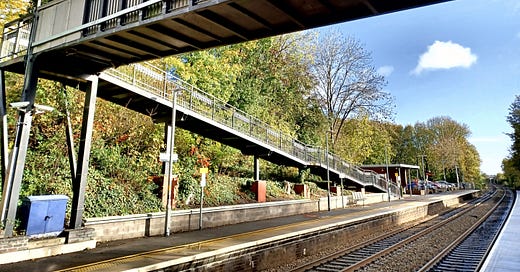




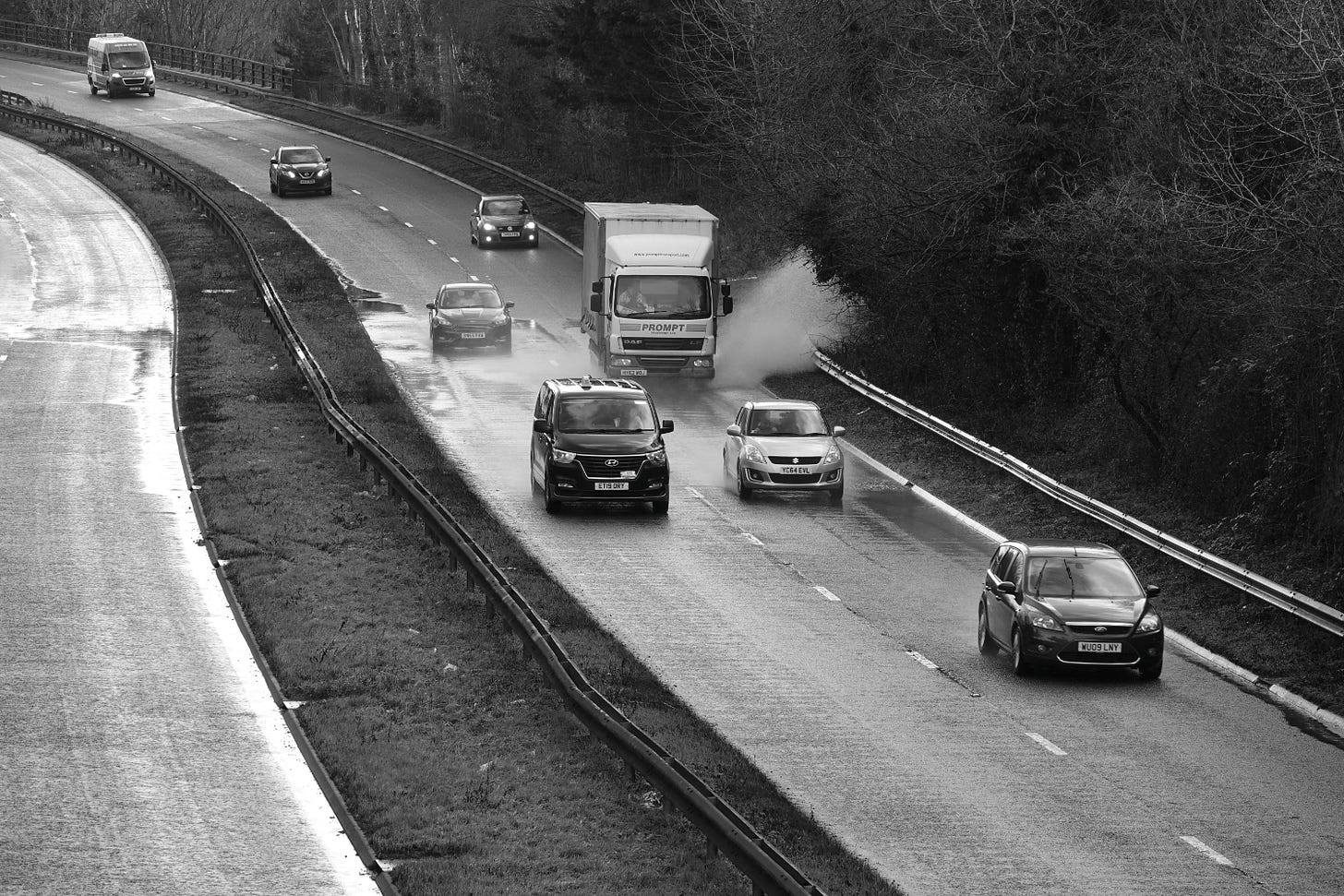
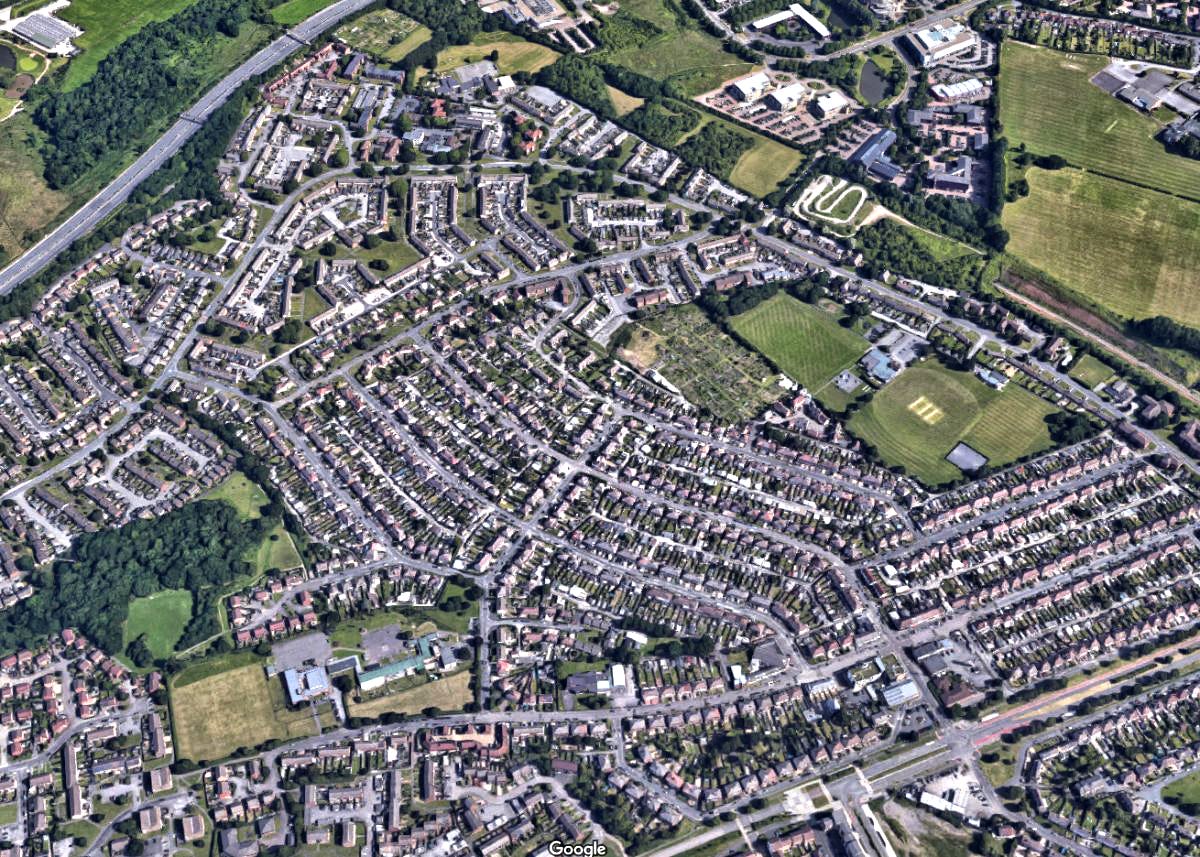

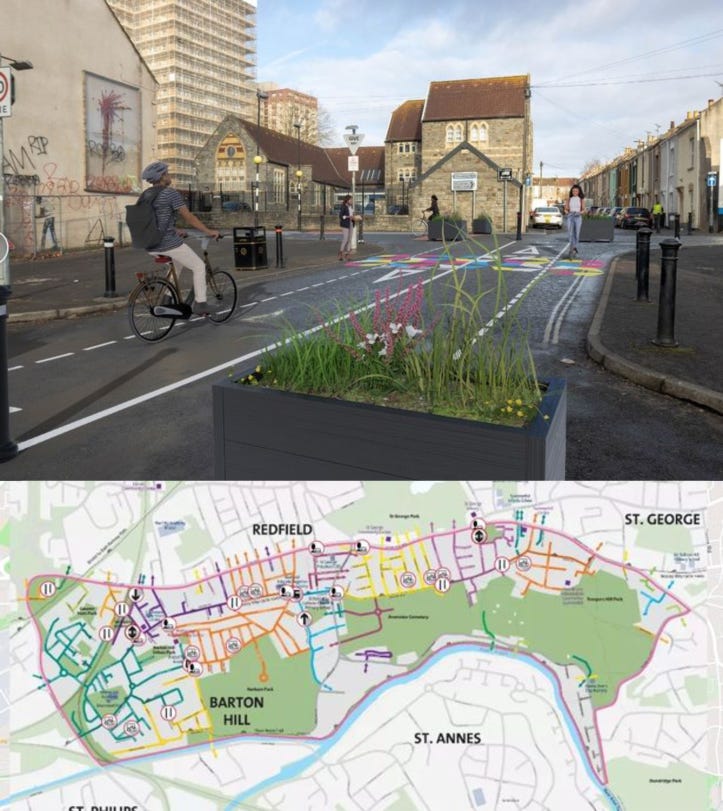

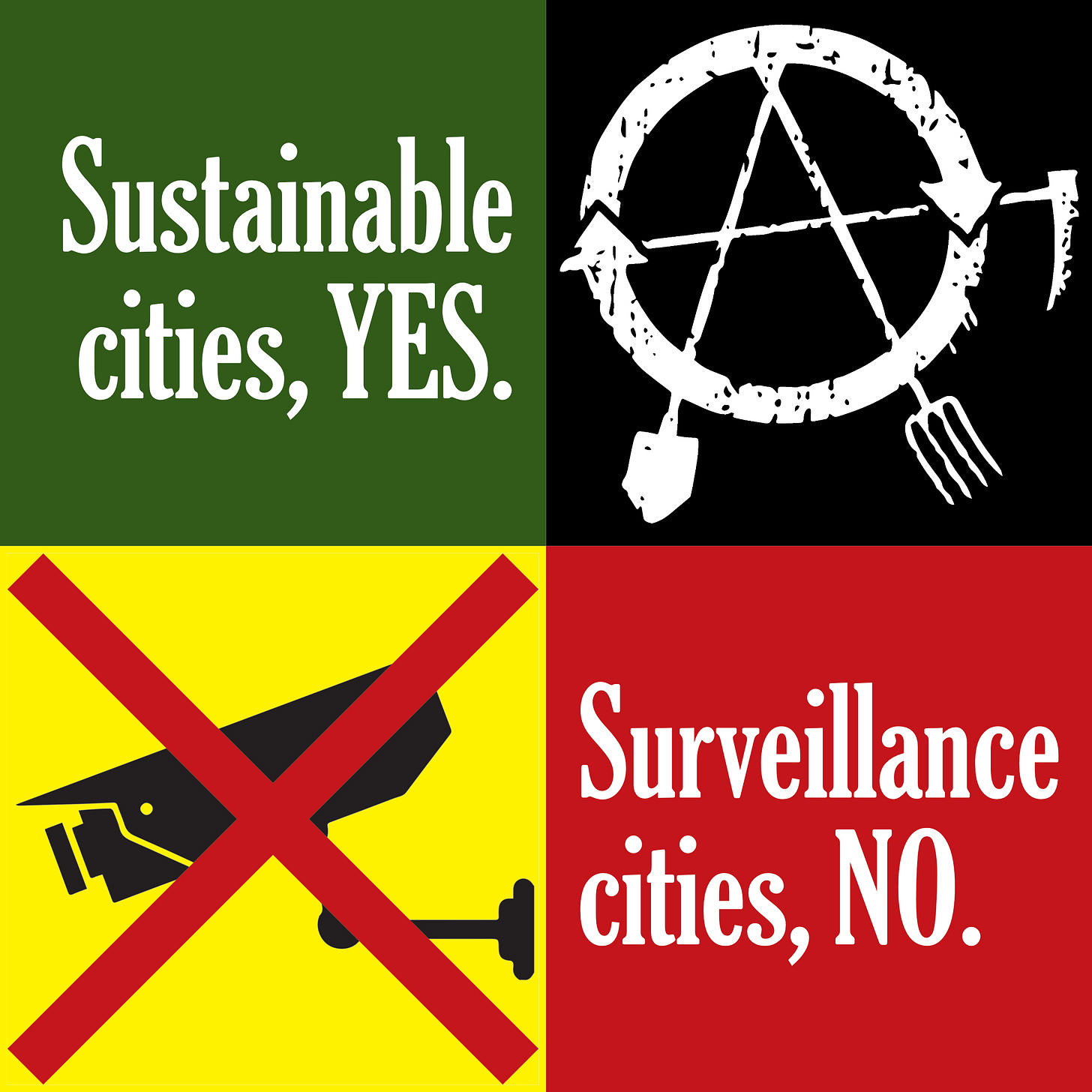
Here's a tangentially related follow up post on my other blog:
Liveable Neighbourhoods - listening to people's concerns
https://thestirrer.blog/2023/07/13/liveable-neighbourhoods-listening-to-peoples-concerns/
"It does seem to be a very vocal minority who favour these schemes. A minority of people whose quality of life would undoubtedly be improved by a reduction in traffic thundering past their front door."
Once you are scrunched down into a 15 minute city, how soon before it becomes a 10 minutes city and then a 5 minute city? Then as the final insult, you are locked in your apartment and left to die? This is the final outcome...the control and murder of humanity.